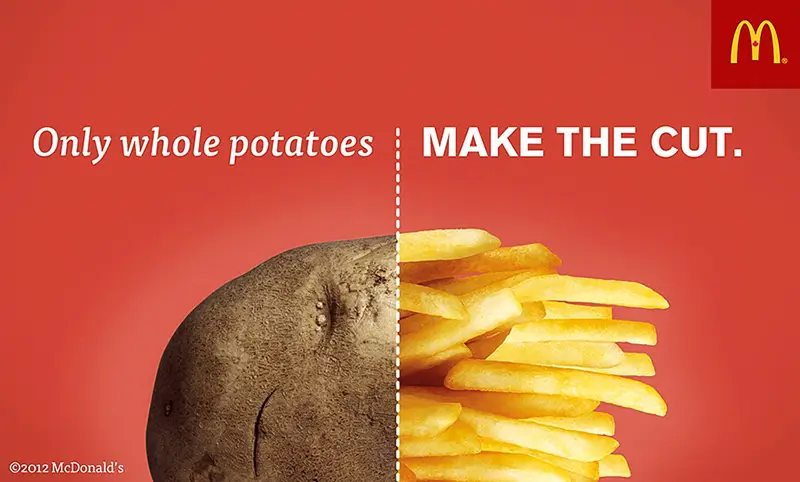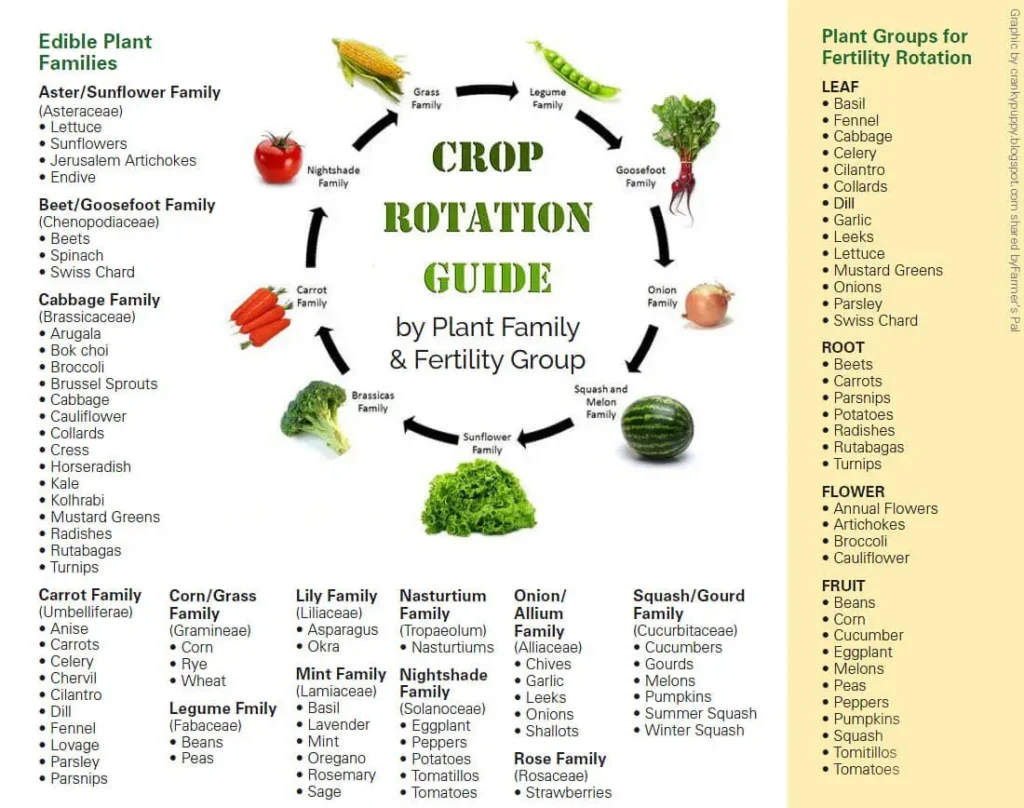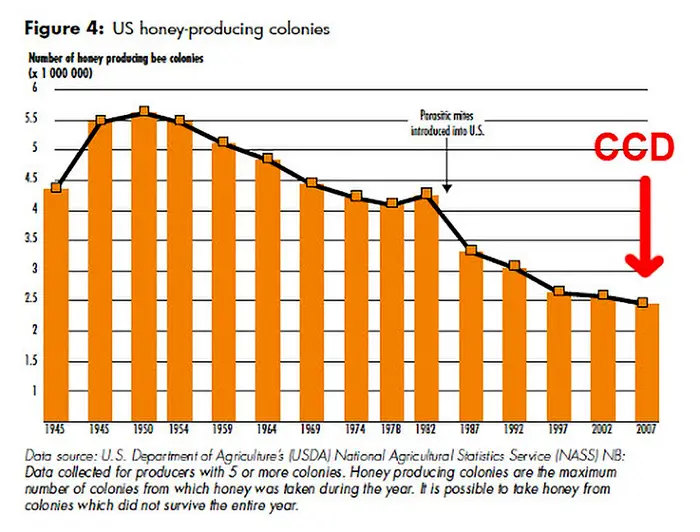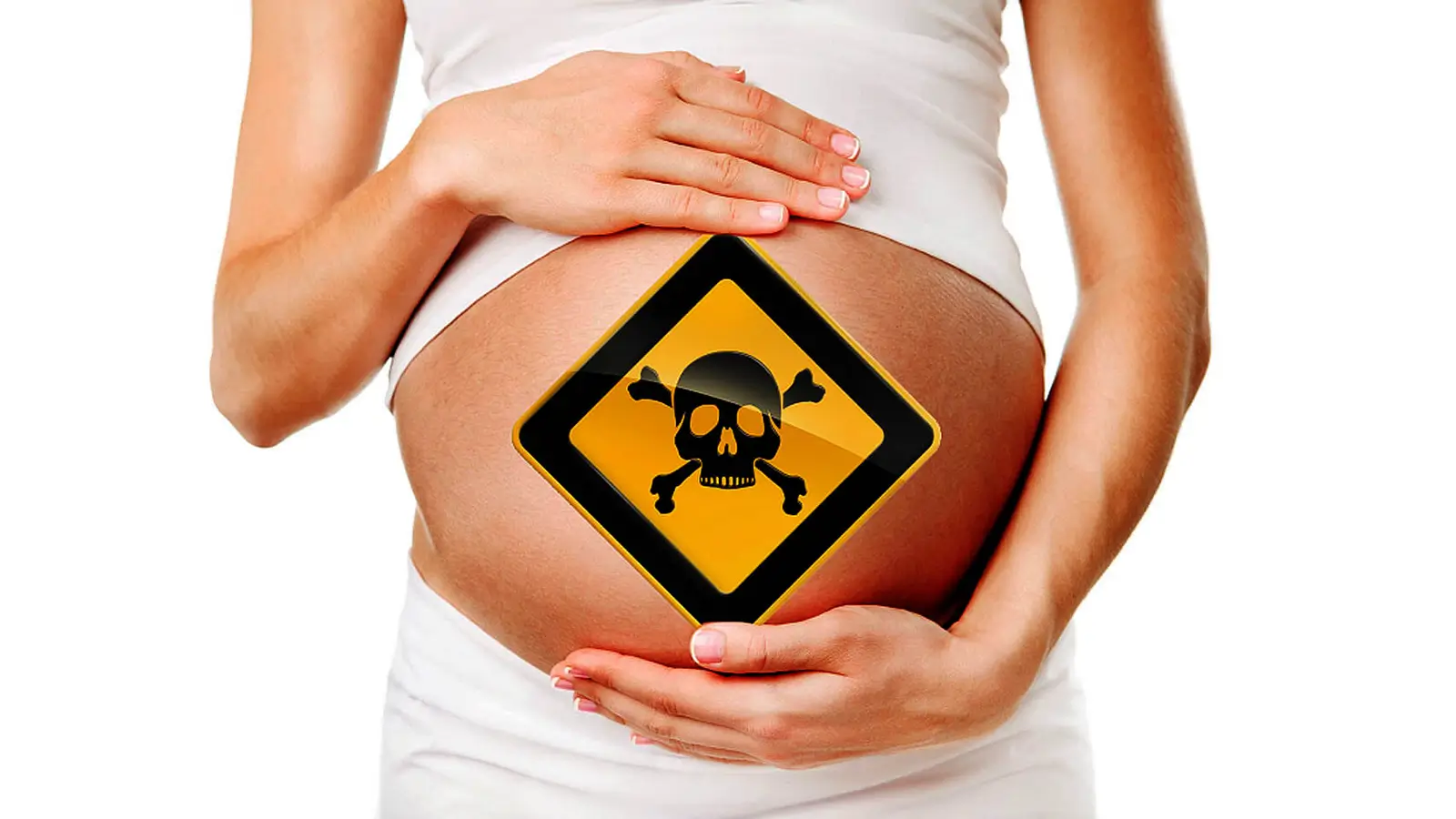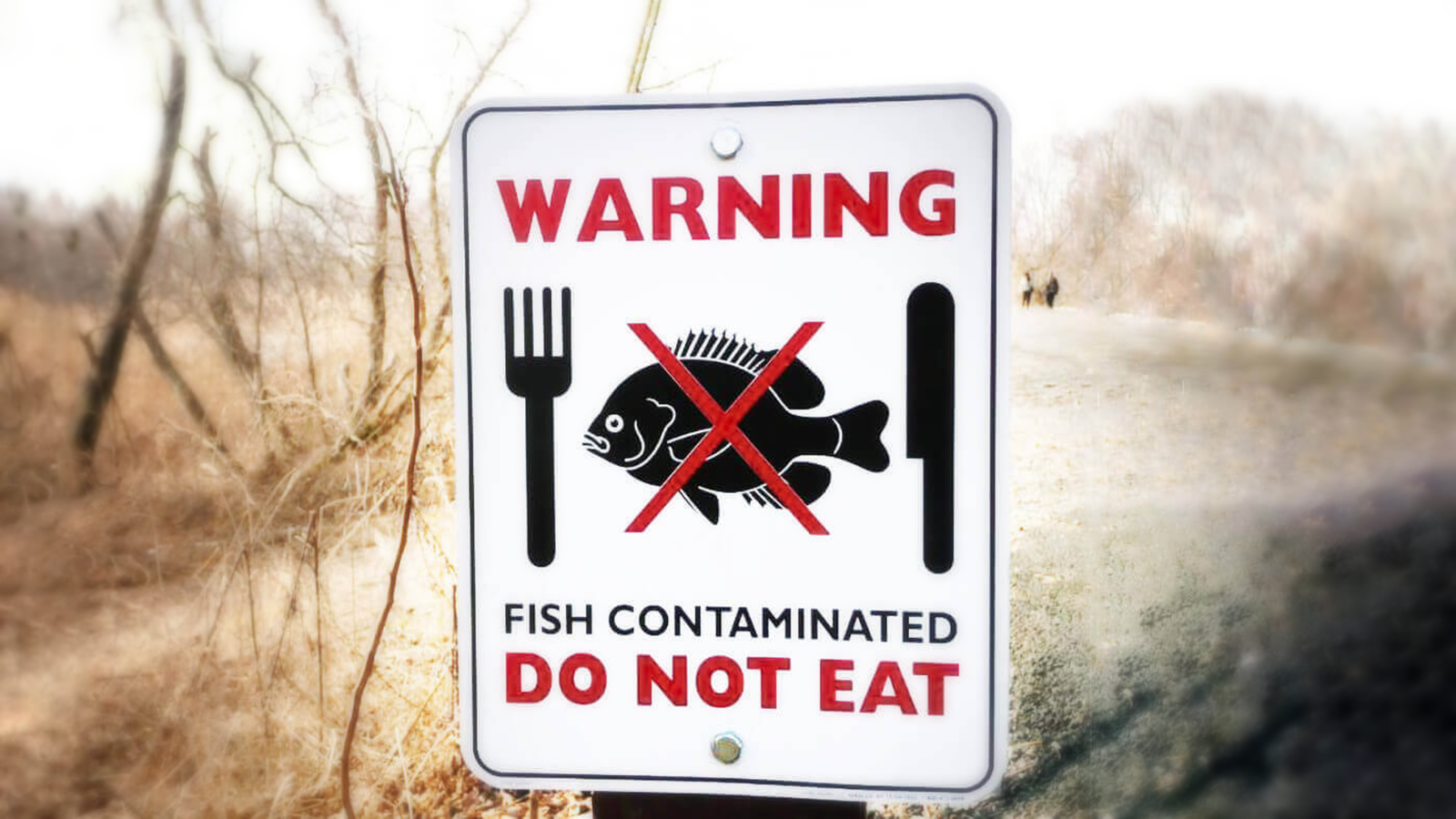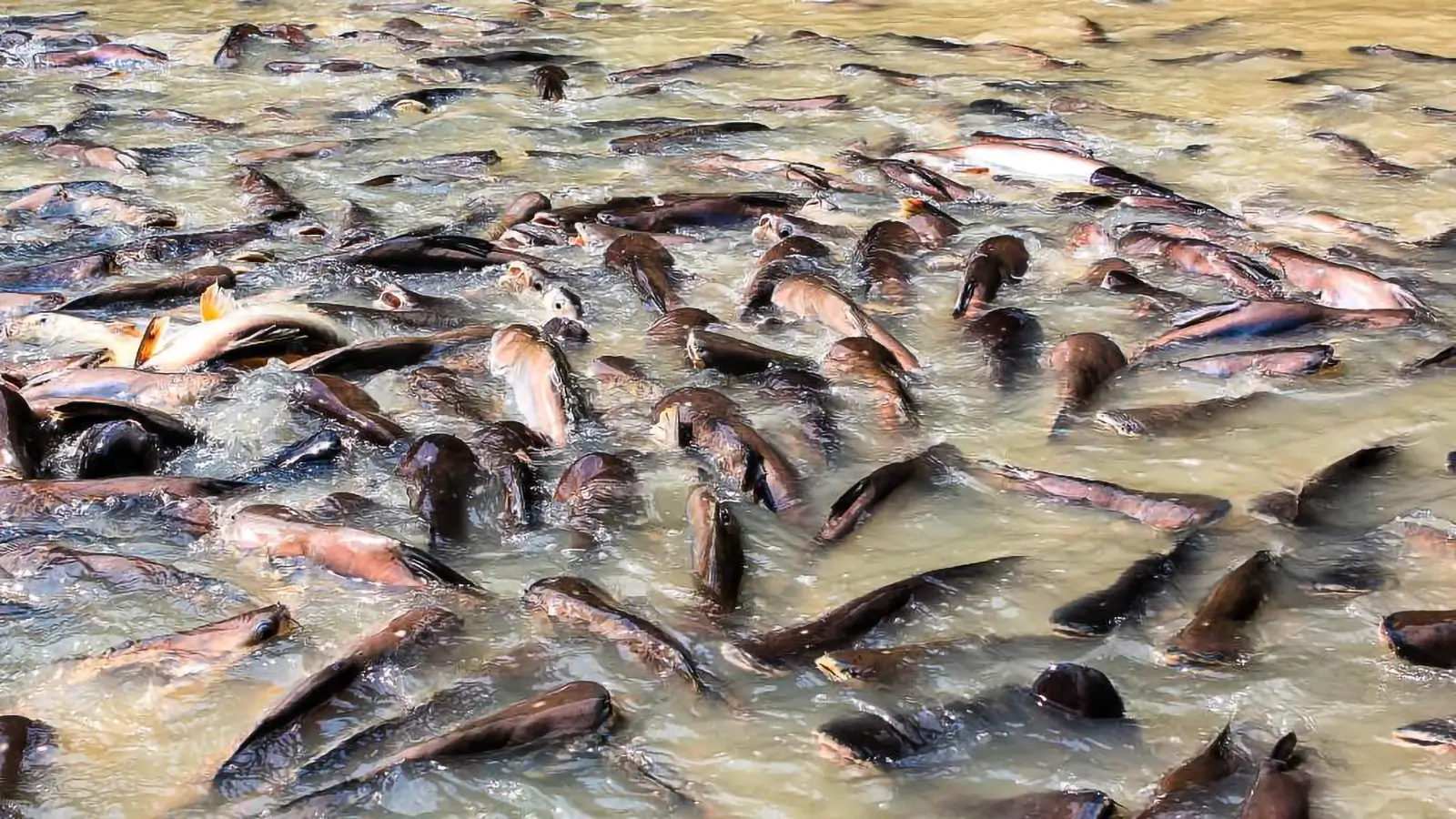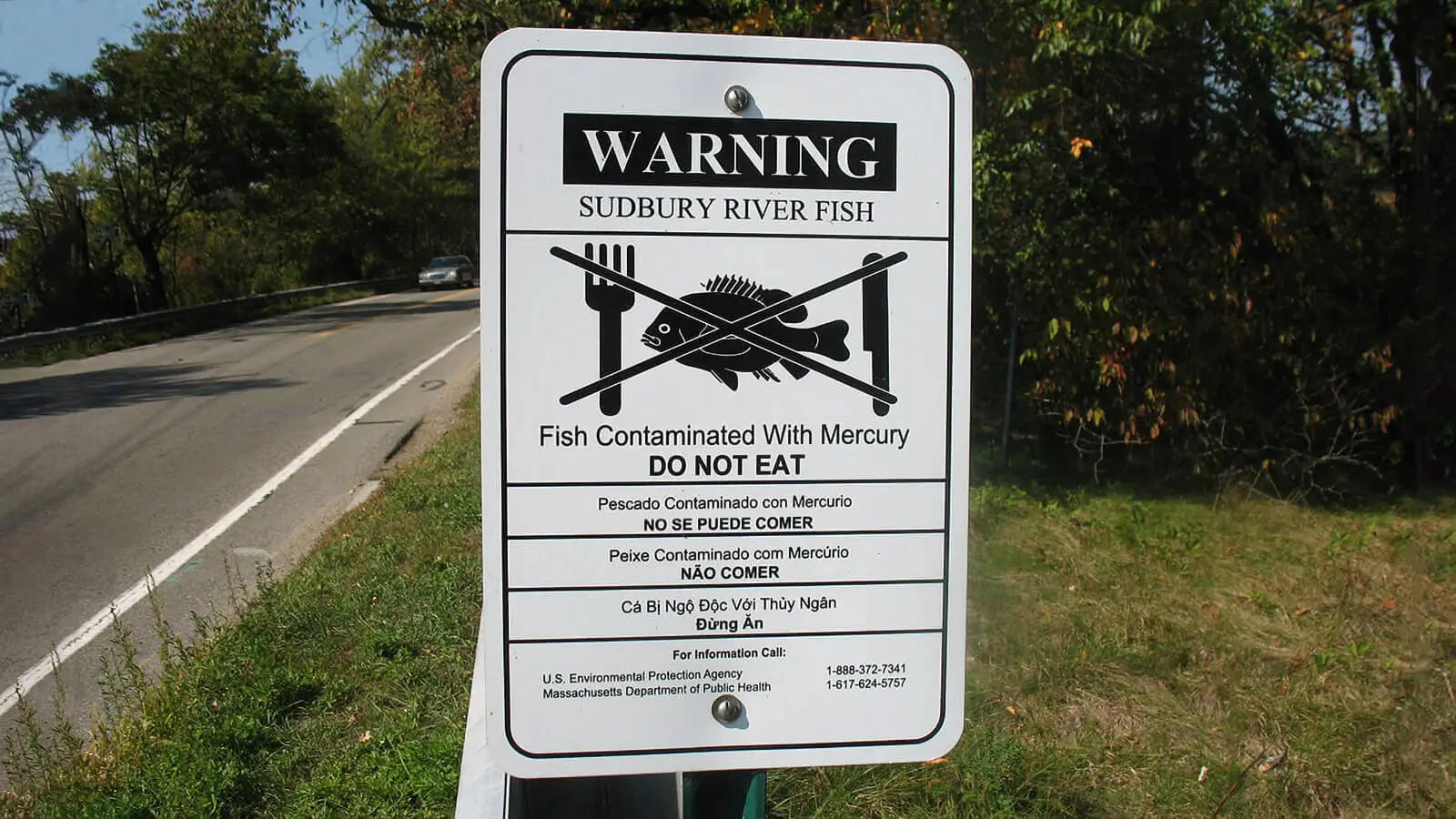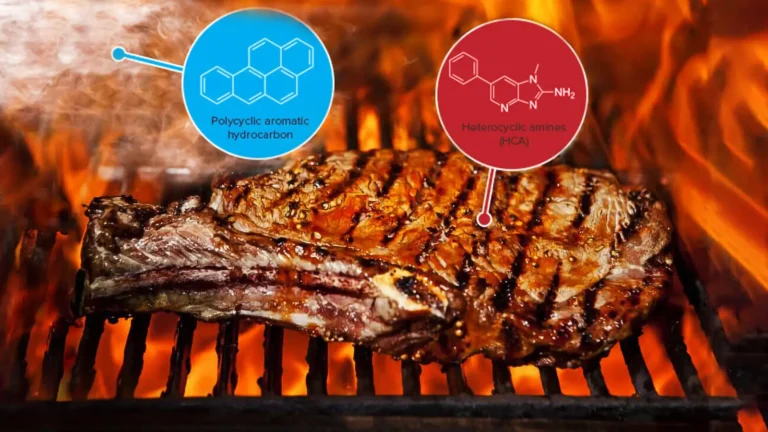Pesticidas, OMG y Sobrecarga Tóxica
La exposición a los pesticidas causa directamente cáncer, defectos de nacimiento, esterilidad e infertilidad, daños en el cerebro y el sistema nervioso, el hígado, los riñones y otros órganos.
Milos Pokimica
Escrito por: Milos Pokimica
Revisado Médicamente Por: Dr. Xiùying Wáng, M.D.
Actualizado el 9 de junio de 2023Todos los pesticidas son similares. Algunos son más tóxicos, otros menos, pero todos son tóxicos. Hoy en día no hay ni un solo pesticida que sea beneficioso para la salud. El DDT, por ejemplo, es ahora una sustancia prohibida en muchas partes del mundo, pero antes no era así. El gobierno solía respaldar el producto y la industria química lo promovía agresivamente. El gobierno y la industria lo apoyaron masivamente durante mucho tiempo. Un tipo de sustancia milagrosa. El arma diabólica de la ciencia moderna mata a miles de millones de insectos y salva a millones de seres humanos. La solución definitiva a la malaria y otras enfermedades transmitidas por insectos.
Los pesticidas son neurotóxicos para los insectos, pero no para los humanos. En los insectos, el DDT abre los canales de iones de sodio en las neuronas, provocando que se disparen espontáneamente, lo que provoca espasmos y finalmente la muerte. Lo único que tiene que hacer el insecto es caminar sobre la superficie tratada. En la mente de los científicos, sólo era una neurotoxina para insectos. No podían considerar la posibilidad de que pudiera hacer otras cosas a largo plazo. Una gran parte de los pesticidas utilizados hoy en día son mucho peores que el DDT.
Otra razón por la que se prohibió el DDT es que durante 30 años se utilizó en exceso y los insectos se hicieron resistentes a él. Esto ocurre en un medio ambiente cuando se introduce un veneno.
Algunos insectos sobreviven y se multiplican. Las características genéticas de los supervivientes estarán más adaptadas contra el mismo tipo de plaguicidas. El plaguicida utilizado por primera vez tendrá el impacto más significativo y hará más daño. Sin embargo, algunos insectos que sobrevivan llevarán sus genes adelante. Con el tiempo, las generaciones venideras serán capaces de soportar más sus efectos y acabarán volviéndose tolerantes. Como los mosquitos en Sudáfrica. Cuanto más tiempo se utiliza un producto químico, más resistentes se vuelven los insectos. Es la misma historia que las cepas de bacterias resistentes a los antibióticos. Cuando esto ocurre, los agricultores tienen que utilizar venenos más eficaces, más potentes y más tóxicos. Así se repetirá el ciclo. Los nuevos compuestos suelen ser más caros, por lo que el coste económico será mayor y además son cada vez más tóxicos. Eso genera un mayor nivel de contaminación y, por tanto, deteriora aún más el equilibrio general del ecosistema.. La alta tasa de reproducción de los insectos hace que en un par de décadas puedan volverse tolerantes, pero ¿y usted?
Los plaguicidas van a parar a las aguas subterráneas, arroyos y ríos. Esto afectará a la biología de muchas especies de peces, aves, mamíferos y otros animales de la cadena alimentaria, y acabará también en su organismo.
Los organismos modificados genéticamente se crean principalmente para que los pesticidas como el Roundup se puedan utilizar en altas dosis para matar a todos estos nuevos insectos resistentes y desagradables. Hemos llegado a un punto en el que tenemos que alterar los genes artificialmente para seguir el ritmo de la evolución natural.
One good example is McDonald’s French fries. In every McDonald’s restaurant in the world, the fries are made from the same potato named Russet Burbank.
This is a potato from America that’s unusually long, and it is also very difficult to grow. It has to be very long because we like those red boxes with a little bouquet of very long fries visually. So McDonald insists that all potatoes be Russet Burbank. They also insist that all chips be clear without blemishes. There is one common defect of Russet Burbank called net necrosis. Because we like fries to be clean without brown spots on them, McDonald’s won’t buy potatoes from farmers who had them. The only way to eliminate the blemishes is to eliminate the aphids. The only pesticide that can kill them is called Monitor. It is so toxic that farmers who grow these potatoes have to spray the pesticides and would not go back to the fields for five days after the spraying. They have to wait for pesticides to wash off before they can go back. When they harvest the potatoes, they have to put them in atmosphere-controlled sheds. In some cases, the size of sheds can rival football stadiums. The reason they are put into sheds in the first place is that they are not edible for six weeks. The potato has to off-gas all the chemicals in them.
In organic farming, crop rotation is useful for addressing many problems of the over usage of pesticides. Monoculture excessively depletes the soil of certain nutrients. The rotation has the purpose of rebuilding the soil. One crop that leaches the soil of one kind of nutrient is then in the next growing season replaced by another crop that doesn’t leach that specific nutrient but draws a different ratio of nutrients. In some cases, if done correctly crop rotation can even return that nutrient to the ground. Rotation in time will build biomass and fertility and structure of the soil from various root structures.
Cuando se cultiva una especie de forma continuada, año tras año, con el tiempo aumentará el número de plagas y, mediante la rotación, se mitigará la acumulación de patógenos y plagas. Sin embargo, a medida que ha ido creciendo la población humana, el monocultivo con fertilizantes sintéticos es la única forma económicamente eficaz de producir todos los cultivos que necesitamos. También ha dejado a los cultivos vulnerables a los ataques extensivos de las plagas. Hoy utilizamos anualmente más de 5.000 millones de libras de pesticidas en toda la Tierra. Todos esos productos químicos acaban en el suelo y en el océano. Además, estos productos químicos han alterado la genética de muchas especies, creando superbacterias. El escarabajo de la patata de Colorado, por ejemplo, es resistente a más de 50 insecticidas. Otros insectos quedan atrapados en el fuego cruzado.
Por ejemplo, desde finales de los años 90, se está produciendo una inexplicable y repentina reducción del número de abejas. A escala mundial, se registran tasas inusualmente altas de disminución de las colonias de abejas melíferas.
Más de un tercio de la producción mundial de cultivos depende de la polinización de las abejas. La pérdida de biodiversidad puede explicarlo. Debido a los monocultivos que las abejas no pueden utilizar para alimentarse y al uso generalizado de pesticidas, algunos de los cuales pueden matarlas directa o indirectamente, la situación es ahora terrible. La muerte de las abejas refleja el equilibrio disfuncional de la naturaleza, con un sistema alimentario disfuncional y un paisaje sin flores. En algunas partes del mundo no hay abejas. En esos lugares, se paga a la gente para que realice la polinización a mano. En Estados Unidos, las abejas están en declive desde la Segunda Guerra Mundial. Antes de la guerra había unos 4,5 millones de colmenas y ahora el número ronda los 2 millones. Los desiertos de alimentos son monocultivos a gran escala que no proporcionan ningún alimento a los insectos, incluidas las abejas. Las granjas que solían sustentar la vida de las abejas son ahora desiertos alimentarios dominados por una o dos especies como el maíz o la soja, sin plantas con flores que las abejas necesitan para sobrevivir. Por ejemplo, la escala del monocultivo de almendras es tal que hoy en día se necesitan 1,5 millones de colmenas o casi todas las colmenas existentes en EE.UU. para realizar una polinización exitosa. Para polinizar este único cultivo es necesario transportar colmenas por todo el país. Se transportan en camiones semirremolque, y después de la floración, los almendros son paisajes sin flores y sin alimento para las abejas, por lo que es necesario transportarlas a otro lugar para que realicen la polinización. El problema es que la producción de alimentos que requiere la polinización de las abejas aumenta cada año. Y luego son necesarios los pesticidas porque los monocultivos son un festín para la plaga que se alimenta de ellos. En el polen que recogen las abejas hay al menos seis tipos de insecticidas. Hay un insecticida especialmente tóxico para las abejas llamado neonicotinoide.
Los plaguicidas han mejorado con el tiempo y se han hecho más potentes y selectivos, pero aún así no son naturales y siguen contaminando el suelo, el agua, la fauna y también nuestra salud.
La exposición a estas sustancias provoca directamente cáncer y otros tumores, leucemia, linfoma, defectos congénitos, infertilidad, otros problemas reproductivos, mortinatalidad, aborto espontáneo, esterilidad e infertilidad, daños cerebrales y del sistema nervioso, y daños en el hígado, riñones, pulmones y otros órganos del cuerpo.
Sin ellos, los precios de los alimentos se dispararán y una gran parte de la población humana morirá de hambre o de enfermedades transmitidas por mosquitos.
Referencias:
Pasajes seleccionados de un libro: Pokimica, Milos. Go Vegan? Examen de Ciencias de la Parte 1. Kindle ed., Amazon, 2018.
Contenidos Relacionados
¿Tienes alguna duda acerca de la nutrición y la salud?
Me encantaría saber de usted y responderlas en mi próxima publicación. Agradezco sus aportes y opiniones y espero tener noticias suyas pronto. También te invito a síguenos en Facebook, Instagram y Pinterest para más contenidos sobre dieta, nutrición y salud. Puedes dejar un comentario allí y conectar con otros entusiastas de la salud, compartir tus consejos y experiencias, y recibir apoyo y ánimo de nuestro equipo y nuestra comunidad.
Espero que este post le haya resultado informativo y ameno y que esté preparado para aplicar los conocimientos adquiridos. Si le ha resultado útil, por favor compártelo con tus amigos y familiares que también podrían beneficiarse de ella. Nunca se sabe quién puede necesitar orientación y apoyo en su camino hacia la salud.
– También Te Puede Interesar –

Aprenda Sobre Nutricion
Milos Pokimica es doctor en medicina natural, nutricionista clínico, escritor sobre salud médica y nutrición y asesor en ciencias de la nutrición. Autor de la serie de libros Go Vegan? Revisión de la Ciencia, también dirige el sitio web sobre salud natural GoVeganWay.com.
Descargo De Responsabilidad Médica
GoVeganWay.com le ofrece reseñas de las últimas investigaciones relacionadas con la nutrición y la salud. La información proporcionada representa la opinión personal del autor y no pretende ni implica sustituir el asesoramiento, diagnóstico o tratamiento médico profesional. La información proporcionada tiene fines informativos únicamente y no pretende sustituir la consulta, el diagnóstico y/o el tratamiento médico de un médico o proveedor de atención médica calificado.NUNCA ignore el CONSEJO MÉDICO PROFESIONAL O RETRASAR la BÚSQUEDA de TRATAMIENTO MÉDICO a CAUSA DE ALGO QUE HAYA LEÍDO EN O accesibles a TRAVÉS de GoVeganWay.com
NUNCA APLICAR CUALQUIER cambio de ESTILO de vida O CAMBIOS EN su totalidad COMO UNA CONSECUENCIA DE ALGO QUE HA LEÍDO EN GoVeganWay.com ANTES de CONSULTAR con LICENCIA PROFESIONAL MÉDICO.
En el caso de una emergencia médica, llame a un médico o al 911 inmediatamente. GoVeganWay.com no se recomienda ni aprueba ninguna de los grupos, las organizaciones, las pruebas, los médicos, productos, procedimientos, opiniones u otra información que pueda ser mencionado en el interior.
Selecciones del editor –
Milos Pokimica es doctor en medicina natural, nutricionista clínico, escritor sobre salud médica y nutrición y asesor en ciencias de la nutrición. Autor de la serie de libros Go Vegan? Revisión de la Ciencia, también dirige el sitio web sobre salud natural GoVeganWay.com.
Últimos artículos -
Planta De Noticias Basado En
-
‘If I Could Only Make One Plant-Based Recipe, This Would Be It’
on julio 10, 2025
-
5-Ingredient Vegan Bread And Butter Pudding
on julio 10, 2025
-
10 Quick Vegan Weekday Breakfasts
on julio 9, 2025
-
This Tempeh Parmesan Recipe Has Gone Viral For A Reason
on julio 8, 2025
-
This High-Protein Vegan Kimchi Jjigae Might Be The Best Yet
on julio 8, 2025
-
16 Vegan Trader Joe’s Meals You Need To Know
on julio 7, 2025
-
Odeon Cinemas Just Added A Moving Mountains Vegan Hot Dog To The Menu
on julio 7, 2025
Top Noticias De Salud — ScienceDaily
- Lemurs age without inflammation—and it could change human health foreveron julio 10, 2025
What if humans didn’t have to suffer the slow-burning fire of chronic inflammation as we age? A surprising study on two types of lemurs found no evidence of “inflammaging,” a phenomenon long assumed to be universal among primates. These findings suggest that age-related inflammation isn’t inevitable and that environmental factors could play a far bigger role than we thought. By peering into the biology of our primate cousins, researchers are opening up new possibilities for preventing […]
- This tiny implant could save diabetics from silent, deadly crasheson julio 10, 2025
MIT engineers have developed a tiny implantable device that could revolutionize emergency treatment for people with Type 1 diabetes. The device contains a powdered form of glucagon and can be remotely triggered—either manually or automatically by a glucose monitor—to release the hormone when blood sugar drops too low. This offers a potentially life-saving safety net, especially during sleep or for young children.
- Your Brain’s Hidden Defenses Against Alzheimer’son julio 10, 2025
Scientists at UCSF combined advanced brain-network modeling, genetics, and imaging to reveal how tau protein travels through neural highways and how certain genes either accelerate its toxic journey or shield brain regions from damage. Their extended Network Diffusion Model pinpoints four gene categories that govern vulnerability or resilience, reshaping our view of Alzheimer’s progression and spotlighting fresh therapeutic targets.
- No training needed: How humans instinctively read nature’s signalson julio 10, 2025
People can intuitively sense how biodiverse a forest is just by looking at photos or listening to sounds, and their gut feelings surprisingly line up with what scientists measure.
- This muscle supplement could rewire the brain—and now scientists can deliver iton julio 10, 2025
Creatine isn’t just for gym buffs; Virginia Tech scientists are using focused ultrasound to sneak this vital energy molecule past the blood-brain barrier, hoping to reverse devastating creatine transporter deficiencies. By momentarily opening microscopic gateways, they aim to revive brain growth and function without damaging healthy tissue—an approach that could fast-track from lab benches to lifesaving treatments.
- Doctors say we’ve been misled about weight and healthon julio 10, 2025
Losing weight isn’t always winning at health, say experts challenging the long-standing obsession with BMI and dieting. New evidence shows that most people with higher body weight can’t sustain long-term weight loss through lifestyle changes—and the pressure to do so may actually cause harm. From disordered eating to reinforced stigma, the consequences go beyond the physical. A growing movement urges doctors to shift away from the scale and toward personalized, compassionate care that […]
- Matching your workouts to your personality could make exercising more enjoyable and give you better resultson julio 9, 2025
Less than a quarter of us hit WHO activity targets, but a new UCL study suggests the trick may be matching workouts to our personalities: extroverts thrive in high-energy group sports, neurotics prefer private bursts with breaks, and everyone sees stress levels drop when they find exercise they enjoy.
PubMed, #Dieta vegana –
- Dietary acid load on the Mediterranean and a vegan diet: a secondary analysis of a randomized, cross-over trialon julio 10, 2025
CONCLUSION: These findings suggest that, compared with the Mediterranean diet, dietary acid load decreased significantly on the low-fat vegan diet and was associated with weight loss. The alkalizing effect of a vegan diet may be an independent mechanism by which a vegan diet promotes weight loss.
- Effects of vegan diets and lifestyle on adult body composition: a narrative reviewon julio 10, 2025
The health benefits of vegan diets are well documented, though achieving nutritional adequacy requires careful planning, as is the case with any well-designed diet. Vegan diets effectively address obesity, with emerging evidence suggesting that body composition analysis offers a more accurate assessment of body weight management than traditional body mass index (BMI) calculations. This narrative review evaluates the impact of vegan diets on adult body composition based on 16 human […]
- Framing the meat consumption transition: A statistical learning approach to explore the factors shaping young adults’ food choices in Germany and Italyon julio 6, 2025
This study examines the factors driving changes in meat consumption among young adults in Germany and Italy-two high-income countries that, despite their distinct culinary traditions, have seen a convergence in meat consumption levels in recent years. The research addresses two aims: to examine the role of environmental attitudes in shaping dietary choices and to explore the impact of socio-demographic factors on meat-consumption patterns. The analysis employs the General Ecological Behavior…
- Health and environmental impacts of shifting to plant-based analogues: a risk-benefit assessmenton julio 5, 2025
CONCLUSION: PBAs can be considered feasible alternatives to animal-based foods, and the results emphasise meat substitution as a crucial factor for health and environmental benefits.
- Exploring the role of gut microbiota in rheumatoid arthritis: the effects of diet and drug supplementationon julio 2, 2025
Rheumatoid Arthritis (RA) is a chronic autoimmune disease that mostly breaks out at the joints. It further causes bone erosion and decreased life quality due to severe pain. Current drugs are mainly focused on reducing pain, but unable to terminate the disease progression. This study aims to determine the effect of diet types (Western, Vegan and Mediterranean) on RA progression. Some dietary supplements and drug administration (Huayu-Qiangshen-Tongbi formula or Leflunomide plus Methotrexate) […]
Publicaciones aleatorias –
Publicaciones destacadas -

La última versión desde PubMed, #Dieta basada en plantas –
- Dietary acid load on the Mediterranean and a vegan diet: a secondary analysis of a randomized, cross-over trialpor Hana Kahleova on julio 10, 2025
CONCLUSION: These findings suggest that, compared with the Mediterranean diet, dietary acid load decreased significantly on the low-fat vegan diet and was associated with weight loss. The alkalizing effect of a vegan diet may be an independent mechanism by which a vegan diet promotes weight loss.
- Impact of Elateriospermum tapos Supplementation on Leptin and Hypothalamic Signaling in Female Offspring of High-Fat Diet-Induced Obesepor Santhra Segaran Balan on julio 10, 2025
CONCLUSION: In conclusion, the E. tapos shell significantly reduced maternal obesity in female offspring at PND21 compared to its seed.
- Healthy Plant-Based Diet Is Associated With a Reduced Risk of Inflammatory Bowel Disease: A Large-Scale Prospective Analysispor Zhenhe Jin on julio 9, 2025
Current studies indicated a potential inverse association between plant-based diets (PBD) and inflammatory bowel disease (IBD). Large-scale research is needed to confirm the protective role of PBD in IBD risk. This study evaluated the associations between PBD and IBD risk and explored potential mediators. This prospective cohort study included 143 434 UK Biobank participants, using 24-h dietary recalls to calculate PBD indexes. Cox regression assessed associations between PBD and IBD risk….
- Associations of nutritional knowledge with dietary patterns and breast cancer occurrencepor Beata Stasiewicz on julio 9, 2025
It is well-established that women’s nutrition knowledge (NK) is strongly associated with children’s nutritional outcomes. However, the association of women’s NK with their own diet and health status, including cancer occurrence, remains unknown. This case-control study aimed to assess the associations of NK with dietary patterns (DPs) and breast cancer (BC) occurrence in peri- and postmenopausal women. Data were collected for 417 women aged 40.0-79.9 years from north-eastern Poland, including…
- To be climate-friendly, food-based dietary guidelines must include limits on total meat consumption – modeling from the case of Francepor Emmanuelle Kesse-Guyot on julio 9, 2025
CONCLUSIONS: While French dietary guidelines contribute, on average, to mitigating climate change and promoting health, this study emphasizes levers in recommended food consumption to more efficiently reduce diets’ GHGe and points to total meat as the critical issue to better account for pressure on climate change. Other environmental pressures should also be taken into account when designing dietary guidelines.
- Acute glycaemic response of orange juice consumption with breakfast in individuals with type 2 diabetes: a randomized cross-over trialpor Kenneth Verboven on julio 8, 2025
CONCLUSION: Acute glycaemic control in individuals with well-controlled T2DM is not significantly influenced by serving orange juice, whole orange pieces or a sugar-sweetened beverage with a standard high-carbohydrate meal.



